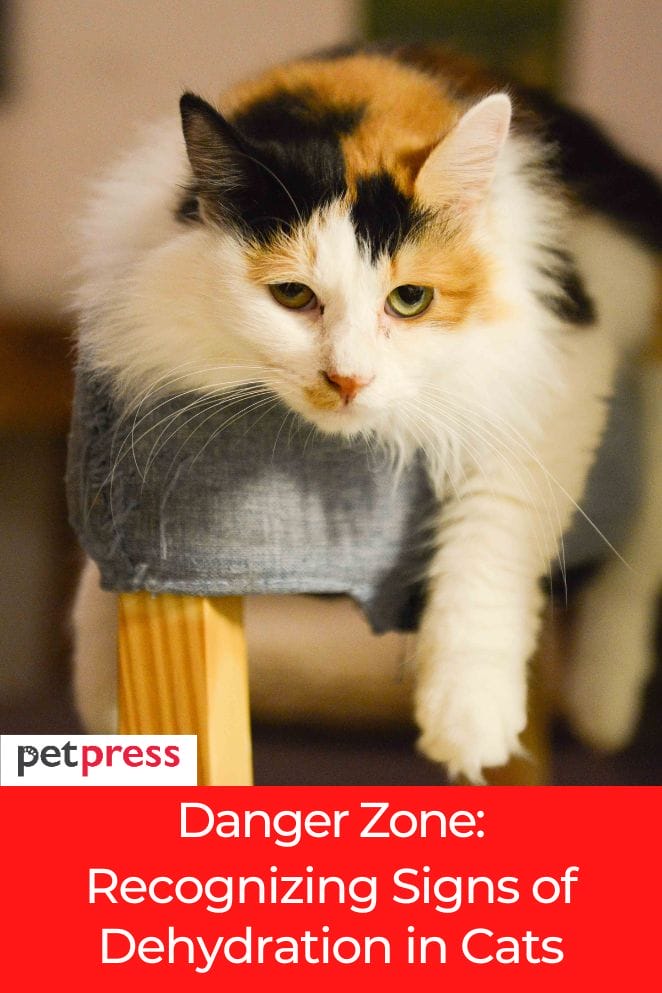
Cats are known for their independent nature, but they still need our help to stay healthy.
One of the most common health issues in cats is dehydration, which can be life-threatening if not recognized and treated promptly.
In this blog post, we’ll discuss the signs of dehydration in cats, how to prevent it, and what to do if your cat is dehydrated.
Common Causes of Dehydration in Cats
Dehydration in cats happens when they don’t have enough water in their bodies.
It’s essential to understand what can cause this, so let’s break it down.
- Not drinking enough water: Cats can become dehydrated if they don’t consume enough fluids, which can be due to a lack of interest in water or not having access to clean water.
- Vomiting and diarrhea: These conditions can cause cats to lose fluids more quickly than they can replace them, leading to dehydration.
- Diabetes and renal disease: Both of these conditions can cause increased water loss, which can quickly result in dehydration.
- Fevers or traumatic injury: These can both lead to dehydration due to increased fluid loss.
- Hot weather and dry air: Prolonged exposure to hot weather or dry air can cause cats to lose fluids through evaporation, leading to dehydration.
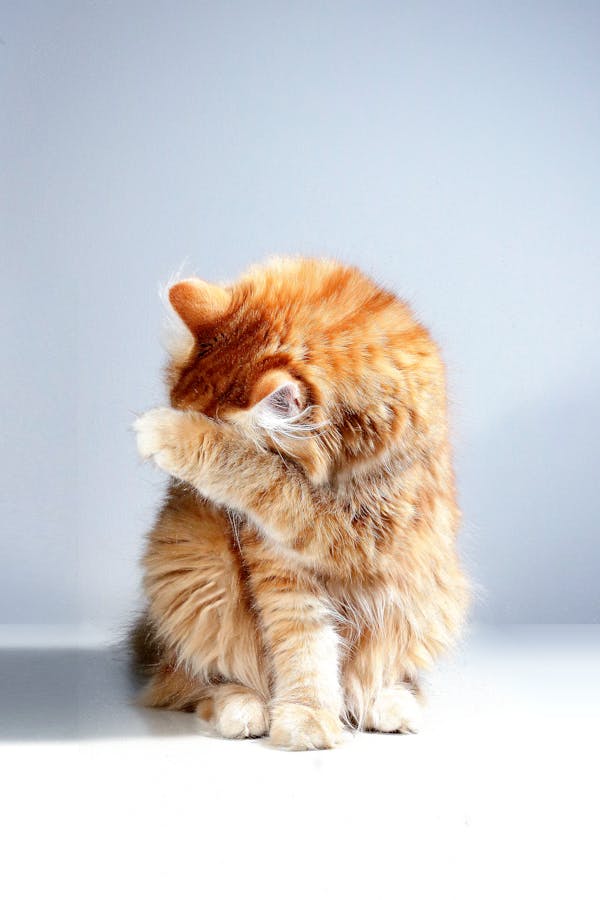
Importance of recognizing the signs of dehydration in your cat
Understanding the signs of dehydration in your cat is like having a superpower—it helps you keep your furry friend healthy and happy.
Here’s why it’s so important:
Early detection
Just like spotting a problem early can save you from bigger headaches later, recognizing dehydration in your cat early allows you to take action before things get serious.
It’s like catching a leaky faucet before it floods the kitchen—fixing it early prevents a big mess!
Prompt treatment
When you notice your cat showing signs of dehydration, you can jump into action.
Whether it’s giving them fresh water or rushing them to the vet, acting quickly can be a lifesaver.
It’s like being a superhero for your cat—saving the day with a bowl of water or a quick trip to the vet’s office!
Prevention of complications
Dehydration isn’t just uncomfortable—it can lead to some scary stuff like kidney problems or even seizures.
But if you catch it early and treat it promptly, you can steer clear of these scary complications.
It’s like putting on sunscreen before you go outside—you avoid getting a nasty sunburn!
Better quality of life
A well-hydrated cat is a happy cat! When your furry friend is hydrated, they’re more energetic, they eat better, and they’re less likely to have health issues.
It’s like giving them the keys to a healthy, happy life—full of playtime, tasty treats, and cuddles!
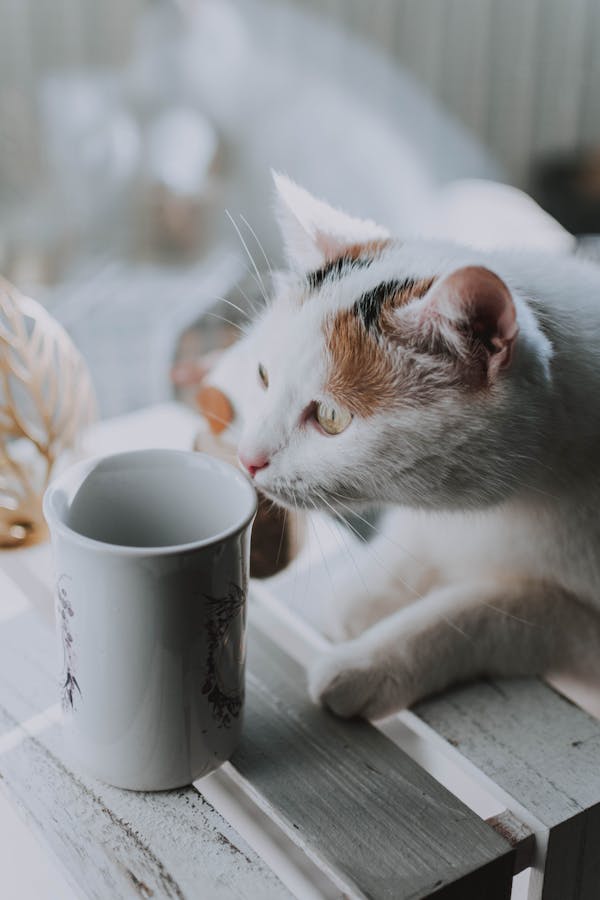
Common Signs of Dehydration
Recognizing dehydration in your cat isn’t always as straightforward as filling up a water bowl.
Here are some common signs to watch out for:
Skin elasticity test
Imagine gently pinching the skin on the back of your hand—it should bounce back quickly, right?
Well, it’s the same for your cat.
If you pinch a bit of skin on their neck and it takes a while to flatten back out, it could mean they’re dehydrated.
It’s like checking if a balloon is fully inflated—slow to bounce back means it needs more air, or in this case, water!
Dry mouth and gums
Check out your cat’s gums—are they moist and pink, or dry and sticky?
If they feel like they’ve been glued shut, that’s a sign your cat might be dehydrated.
It’s like when your mouth gets all dry and sticky on a hot day—you just want a big gulp of water to fix it!
Sunken eyes
Dehydration can make your cat’s eyes look like they’re sinking into their head.
It’s like when you’re really tired and your eyes start to droop—except for cats, it can be a sign they need more than just a nap to perk up.
Lethargy and weakness
If your cat seems less interested in playtime and more interested in snoozing all day, it could be because they’re feeling weak and tired from dehydration.
It’s like when you’re so tired you can barely lift a finger—except for cats, it might mean they need a little extra TLC to bounce back.
Reduced Appetite
Just like when you’re feeling under the weather and don’t feel like eating, a dehydrated cat might lose interest in their favorite treats and meals.
It’s like when you skip dinner because you’re not feeling hungry—except for cats, it could mean they need some extra encouragement to eat and drink.
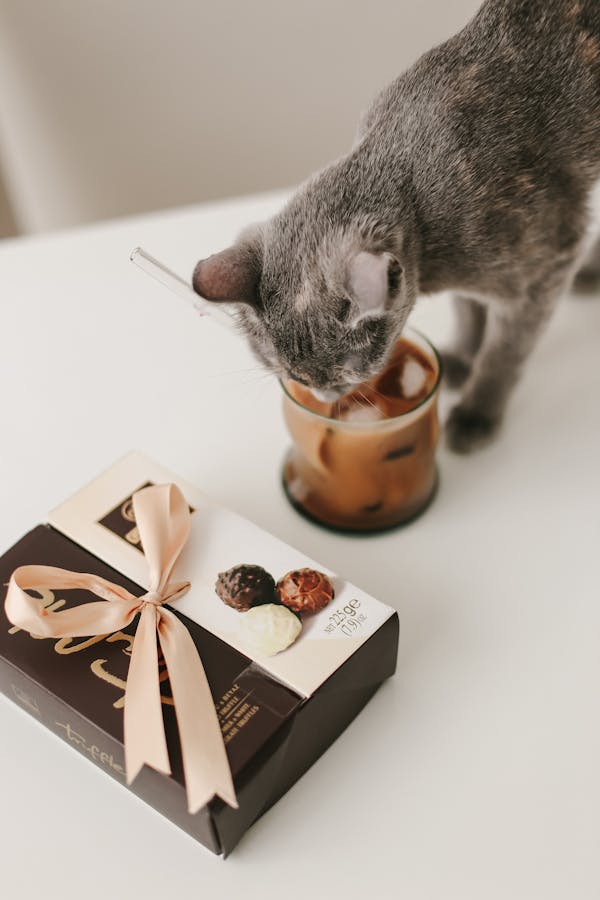
Tips to keep your cat hydrated
Keeping your cat hydrated is essential for their health and happiness.
Here are some tips to make sure they’re getting enough fluids:
Moist or wet food
Including moist or wet food in your cat’s diet can up their water intake.
These foods have higher water content than dry kibble, which can help keep your kitty hydrated.
You can even add a splash of water to their meals for an extra hydration boost!
Fresh water always
Cats prefer their water fresh and clean, just like we do!
Make sure to provide multiple water bowls around the house, preferably made of ceramic or glass.
Place them in quiet spots where your cat feels comfortable drinking, away from their litter box or food.
Keep an eye out
Monitoring your cat’s water intake, behavior, energy levels, and bathroom habits can clue you in on their hydration status.
If you notice any changes or signs of dehydration, like lethargy or sunken eyes, it’s time to take action!
Playtime hydration
Encouraging active play sessions not only keeps your cat entertained but also encourages them to drink more water afterward.
It’s like rewarding them with a refreshing drink after a fun workout!
Water fountains
Cats are drawn to moving water, so investing in a water fountain can be a smart move.
The constant flow of water may entice them to drink more, ensuring they stay hydrated throughout the day.
Add some flavor
Sometimes, a little flavor goes a long way.
Introducing liquids from a can of tuna or chicken broth (without additives like salt or onions) to their water can make it more appealing to picky drinkers.
Slow changes
If you’re making any changes to your cat’s diet or water sources, do it gradually.
Sudden changes can stress them out, leading to less drinking. Slow and steady wins the hydration race!
Vet consultation
If you’re ever unsure about your cat’s hydration levels or health, don’t hesitate to reach out to your veterinarian.
They can provide personalized guidance and ensure your cat stays happy and hydrated.
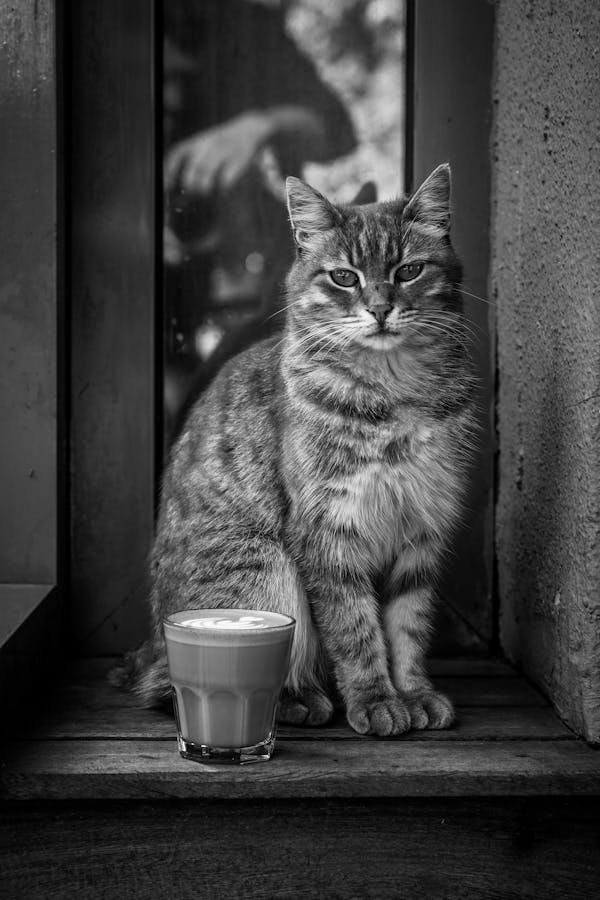
Conclusion
Dehydration poses a significant risk to your cat’s well-being.
By recognizing its signs and taking preventive steps, you can safeguard your cat’s health and hydration.
If you notice any signs of dehydration or other health concerns, it’s crucial to seek guidance from a veterinarian promptly.
Your veterinarian can provide the necessary support and care to ensure your cat stays healthy and hydrated.
FAQs
You can add flavor to the water, use a water fountain, or provide wet food to increase your cat’s water intake.
Yes, dry food can contribute to dehydration if your cat doesn’t drink enough water to counteract the dryness of the food.
Consult with a veterinarian immediately and provide your cat with fluids and electrolytes as prescribed.


GIPHY App Key not set. Please check settings